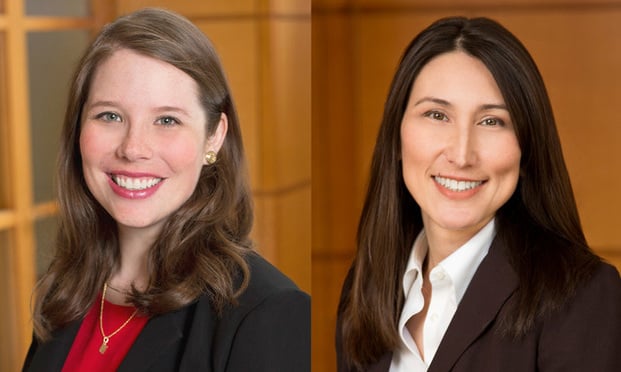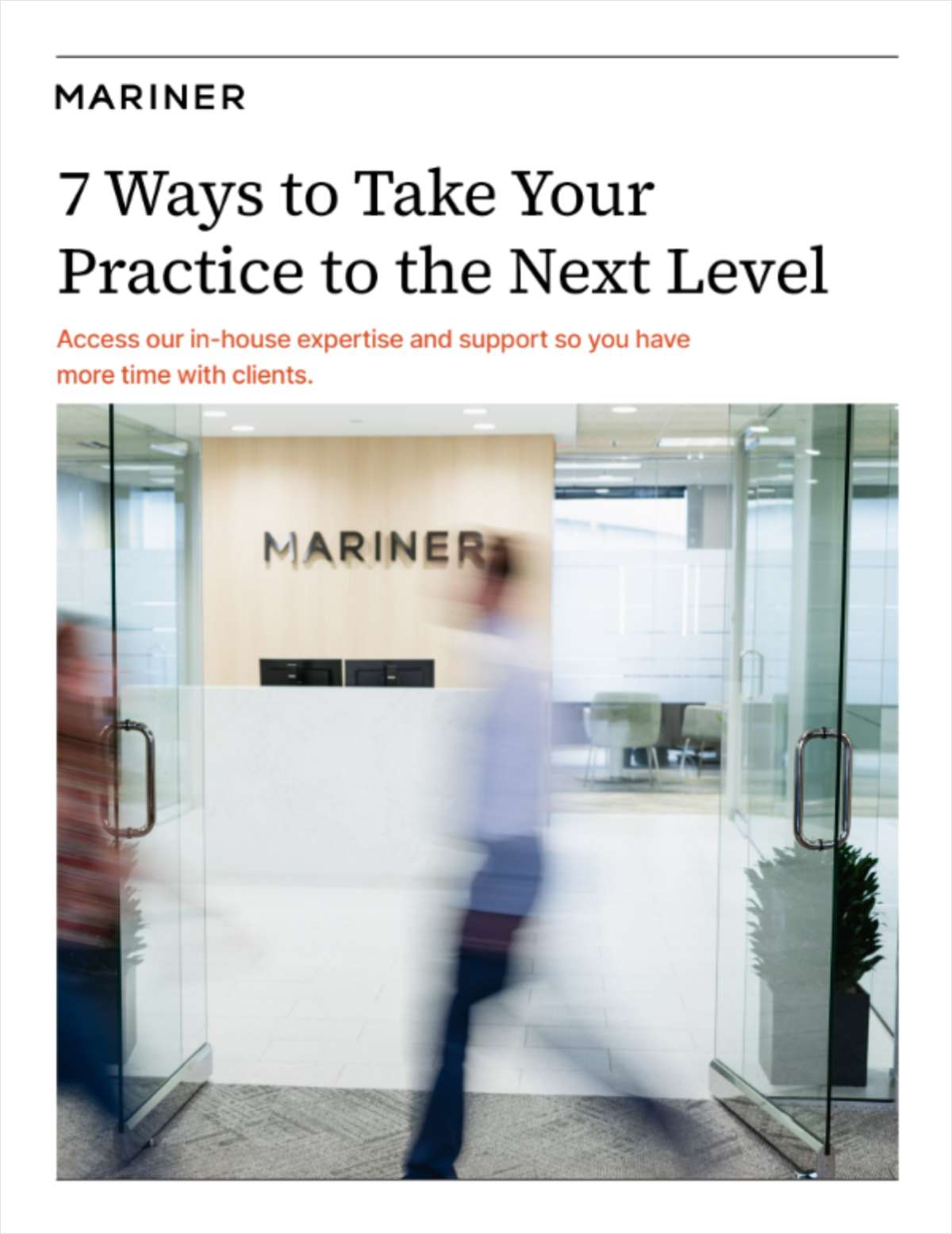Good Practices for Sharing Space With Other Attorneys
While co-working spaces may cure the discomfort of isolation, allow attorneys to save on overhead costs, and provide an opportunity for peer feedback, they are not without risk.
March 30, 2018 at 01:27 PM
6 minute read

The legal industry is not immune to the technological and workplace advances of the 21st century. One such development is “co-working spaces,” where attorneys or other professionals share an office space even though they are not affiliated together in a practice or firm, often for a much reduced cost than if they each rented their own space. This new phenomenon is especially popular in urban areas where the cost of rent is high. In the last decade the number of co-working spaces is reported to have nearly doubled every year.
As a result, many attorneys, especially young attorneys, have joined their fellow professionals in the co-working space world. In addition to saving money on rent, attorneys in a shared space may find it helpful to occasionally consult one another on a case or other issues related to the business and practice of law. And these conversations are usually an acceptable and beneficial boon when sharing a workplace.
While co-working spaces may cure the discomfort of isolation, allow attorneys to save on overhead costs, and provide an opportunity for peer feedback, they are not without risk.
When attorneys share an office space, each of them likely understands that they are not a “firm” but are each conducting their own practice. As separate practices, each member of the co-working space will usually not share fees or other revenue, will file separate income taxes, and typically maintain their own malpractice policies.
But a consideration that may not be obvious is what their clients believe about the shared arrangement. This factor is often a critical consideration when determining whether an attorney-client relationship exists.
A risk when attorneys share their office space with others is that their clients could reasonably believe they were retaining the representation of every attorney in the co-working space, or that each attorney in the co-working space represents their interests. Under a general partnership theory, a client could then potentially bring a claim against every attorney in the space arising from the conduct of the sole attorney that was retained. Ultimately, it will likely be a question of fact whether the client “reasonably believed” an attorney-client relationship existed. (See Darlow v. Day, Berry & Howard, No. CV 970575509S, at *7 (Conn. Super. Ct. Mar. 4, 1999).)
To make matters worse, the other attorneys in the shared space may not have insurance coverage available to them for such a claim. Malpractice policies usually do not provide coverage for claims arising from alleged vicarious liability for an attorney that is not a member of the law firm that is insured under the policy.
Therefore, if at any time a client expresses confusion about whether he or she is also represented by the other attorneys in the co-working space, most attorneys will immediately remedy that misunderstanding. Many attorneys also find it is helpful to address the shared office space at the beginning of the representation, including by providing the client with a written disclaimer of a formal relationship with the other attorneys in the shared space.
Of the state bar organizations that have addressed the issue, most have readily concluded that sharing office space is acceptable for attorneys when ethical rules are followed. Pertinent rules include those relating to client confidentiality, conflicts of interest, disqualification, communications concerning the attorney's services, and firm materials.
The Connecticut Bar Association has also issued a few opinions concerning shared office spaces, demonstrating that these arrangements warrant consideration of the risks and advantages. Many attorneys that make the decision to practice in a co-working space will, therefore, take the following steps to make sure they are practicing ethically.
Utilize Appropriate Materials
While sharing office materials can be cost-effective, it is important that materials containing the attorneys' information that is shared with the outside world accurately portrays the arrangement.
The Connecticut Bar Association has provided that is improper under the Rules of Professional Conduct for attorneys sharing office space to use letterhead, business cards, or similar material listing the three lawyers together as a single entity. (Informal Opinion No. 9 (1997); see also Formal Opinion No. 40 (1990) (providing that it is not unethical for attorneys to share an office space, but that firm stationary must clearly indicate the separate practices and reference made to the practices plural at all times).)
Take Concrete Steps to Maintain Confidentiality
The Connecticut Bar Association has also made clear that preservation of client confidences and secrets must be strictly observed when sharing an office space. To ensure this rule is being observed, many attorneys will not share the same filing cabinets or storage areas within their co-working space. Attorneys in the space may also discuss devising a system for mail reception so that it is delivered to, and then opened and read by, only the appropriate attorney.
Sharing computer systems is another important consideration. Network access can be restricted so that an attorney in the office can only access his or her clients' files and information. Informing clients of these measures will also alleviate any potential concerns that they may have about the shared space and their attorney's obligation to maintain confidentiality.
Ongoing Dialogue
Finally, it is important for attorneys in the shared space to have a conversation about the goals and limits of the shared space.
Consistent communication will generally ensure there is no doubt in the co-working space that each attorney continues to practice independently, while gaining the advantages of workplace density. Attorneys can also discuss referral agreements (where compliant with the ethical rules) and set guidelines that will reduce the risk of conflicts being imputed throughout the office.
With the added benefit of additional minds to solve the new ethical issues that arise, the use of co-working spaces will likely continue to increase.
Shari L. Klevens is a partner at Dentons U.S. in Atlanta and Washington and serves on the firm's U.S. board of directors. She represents and advises lawyers and insurers on complex claims and is co-chairwoman of Dentons' global insurance sector team.
Alanna G. Clair is a senior managing associate at the firm in Washington and focuses on professional liability defense. Klevens and Clair are co-authors of “The Lawyer's Handbook: Ethics Compliance and Claim Avoidance.”
This content has been archived. It is available through our partners, LexisNexis® and Bloomberg Law.
To view this content, please continue to their sites.
Not a Lexis Subscriber?
Subscribe Now
Not a Bloomberg Law Subscriber?
Subscribe Now
NOT FOR REPRINT
© 2025 ALM Global, LLC, All Rights Reserved. Request academic re-use from www.copyright.com. All other uses, submit a request to [email protected]. For more information visit Asset & Logo Licensing.
You Might Like
View All
Too Zealous? Advocacy Looks Different Now—6 Takeaways From Winning Litigators
5 minute read
Think About It: Being Better than AI Requires Contemplation

Preventing Painful Losses From Criminal Scams: Complacency Precedes Disaster

'There Is Going to Be Pushback': Personal Injury Lawyers Fire Back at Critic Over Pricing and Practices
4 minute readTrending Stories
- 1Decision of the Day: Judge Dismisses Defamation Suit by New York Philharmonic Oboist Accused of Sexual Misconduct
- 2California Court Denies Apple's Motion to Strike Allegations in Gender Bias Class Action
- 3US DOJ Threatens to Prosecute Local Officials Who Don't Aid Immigration Enforcement
- 4Kirkland Is Entering a New Market. Will Its Rates Get a Warm Welcome?
- 5African Law Firm Investigated Over ‘AI-Generated’ Case References
Who Got The Work
J. Brugh Lower of Gibbons has entered an appearance for industrial equipment supplier Devco Corporation in a pending trademark infringement lawsuit. The suit, accusing the defendant of selling knock-off Graco products, was filed Dec. 18 in New Jersey District Court by Rivkin Radler on behalf of Graco Inc. and Graco Minnesota. The case, assigned to U.S. District Judge Zahid N. Quraishi, is 3:24-cv-11294, Graco Inc. et al v. Devco Corporation.
Who Got The Work
Rebecca Maller-Stein and Kent A. Yalowitz of Arnold & Porter Kaye Scholer have entered their appearances for Hanaco Venture Capital and its executives, Lior Prosor and David Frankel, in a pending securities lawsuit. The action, filed on Dec. 24 in New York Southern District Court by Zell, Aron & Co. on behalf of Goldeneye Advisors, accuses the defendants of negligently and fraudulently managing the plaintiff's $1 million investment. The case, assigned to U.S. District Judge Vernon S. Broderick, is 1:24-cv-09918, Goldeneye Advisors, LLC v. Hanaco Venture Capital, Ltd. et al.
Who Got The Work
Attorneys from A&O Shearman has stepped in as defense counsel for Toronto-Dominion Bank and other defendants in a pending securities class action. The suit, filed Dec. 11 in New York Southern District Court by Bleichmar Fonti & Auld, accuses the defendants of concealing the bank's 'pervasive' deficiencies in regards to its compliance with the Bank Secrecy Act and the quality of its anti-money laundering controls. The case, assigned to U.S. District Judge Arun Subramanian, is 1:24-cv-09445, Gonzalez v. The Toronto-Dominion Bank et al.
Who Got The Work
Crown Castle International, a Pennsylvania company providing shared communications infrastructure, has turned to Luke D. Wolf of Gordon Rees Scully Mansukhani to fend off a pending breach-of-contract lawsuit. The court action, filed Nov. 25 in Michigan Eastern District Court by Hooper Hathaway PC on behalf of The Town Residences LLC, accuses Crown Castle of failing to transfer approximately $30,000 in utility payments from T-Mobile in breach of a roof-top lease and assignment agreement. The case, assigned to U.S. District Judge Susan K. Declercq, is 2:24-cv-13131, The Town Residences LLC v. T-Mobile US, Inc. et al.
Who Got The Work
Wilfred P. Coronato and Daniel M. Schwartz of McCarter & English have stepped in as defense counsel to Electrolux Home Products Inc. in a pending product liability lawsuit. The court action, filed Nov. 26 in New York Eastern District Court by Poulos Lopiccolo PC and Nagel Rice LLP on behalf of David Stern, alleges that the defendant's refrigerators’ drawers and shelving repeatedly break and fall apart within months after purchase. The case, assigned to U.S. District Judge Joan M. Azrack, is 2:24-cv-08204, Stern v. Electrolux Home Products, Inc.
Featured Firms
Law Offices of Gary Martin Hays & Associates, P.C.
(470) 294-1674
Law Offices of Mark E. Salomone
(857) 444-6468
Smith & Hassler
(713) 739-1250










